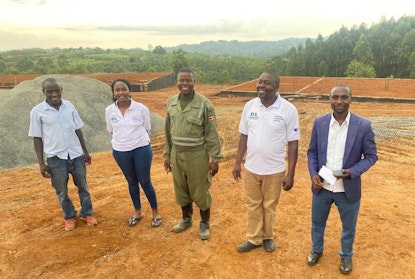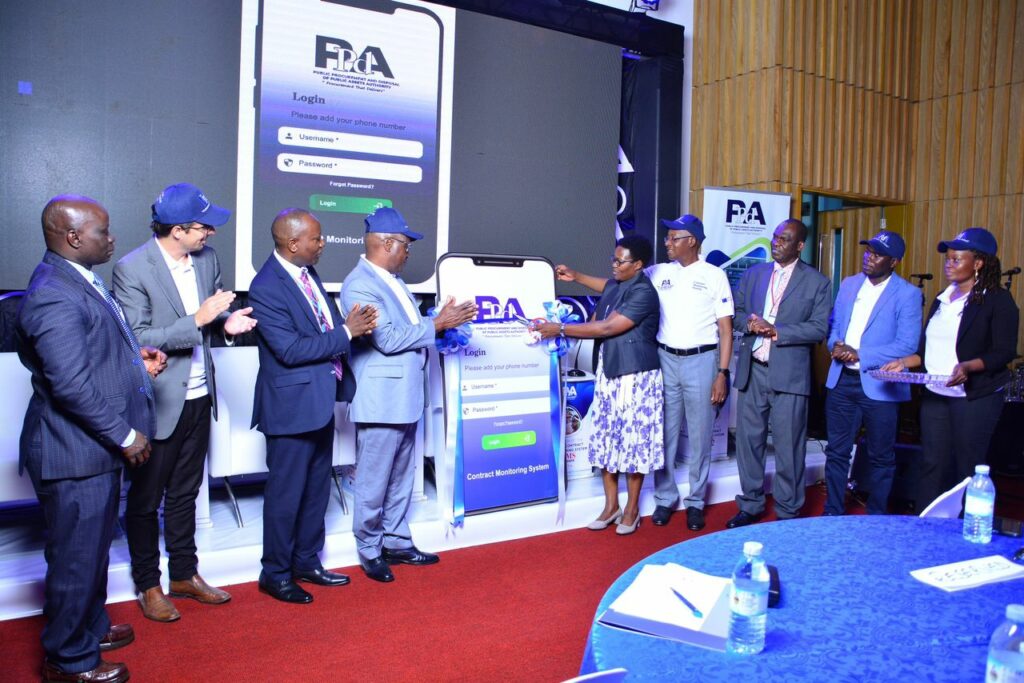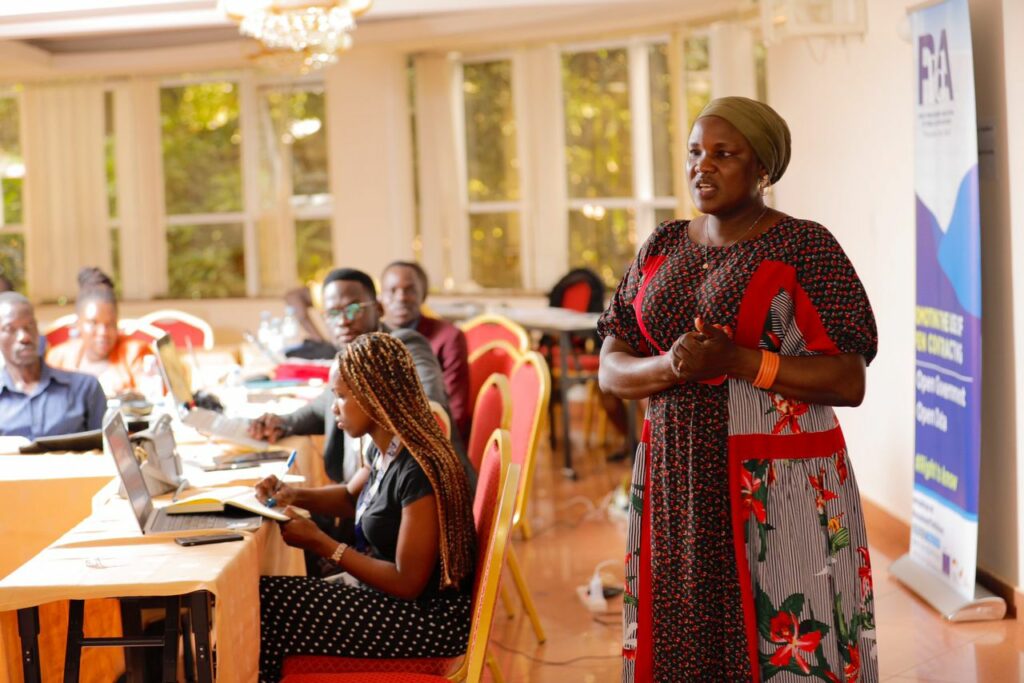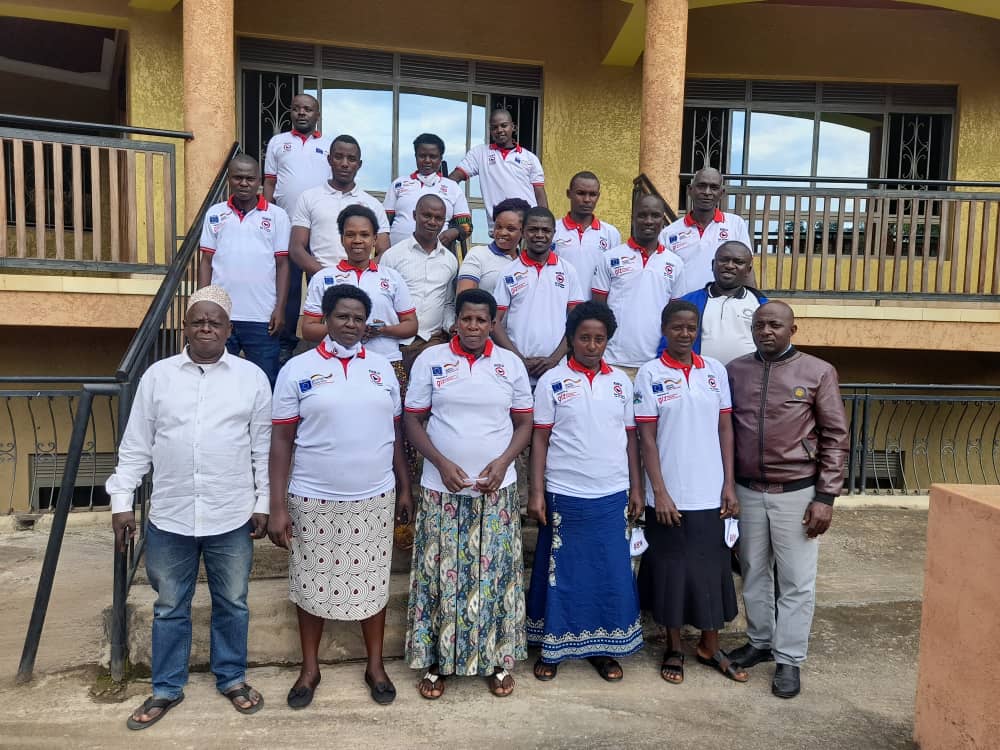Revolutionizing public procurement in Uganda: the power of citizen contract monitoring

Challenge: Uganda’s public procurement authorities lack adequate resources and manpower to monitor many major contractors across the country’s more than 100 districts, leading to abandoned projects, missing deliverables and time and cost overruns.
Open contracting approach: Uganda’s Public Procurement and Disposal of Public Assets Authority (PPDA) worked collaboratively with civil society and a development partner, the German Development Agency GIZ to build a digital contract monitoring system. The stakeholders worked together to agree MOUs and training for collaborative monitoring and feedback based around a simple digital monitoring app and new feedback loops calling on contractors and local authorities to respond.
Results: Since the Contract Monitoring System’s launch in April 2022, around 560 civil society monitors have examined 345 projects. The new feedback mechanism between civil society and government has led to the resolution of 200 issues at the local procuring entity level and a further 24 at the PPDA level. It is slowly changing deeply held perceptions to show how government and civil society can work together collaboratively to deliver better public services with new collaborations and wider rollout of monitoring being planned.
In the heart of Uganda, a digital revolution is quietly reshaping the way public procurement works. Imagine a world where projects are monitored in real-time, complaints are reduced, and citizens actively participate in shaping their communities. This seemed like a distant dream but it is gradually getting closer thanks to a groundbreaking new initiative, Uganda’s Contract Monitoring System (CMS).
Launched in April 2022, the CMS was developed by Uganda’s Public Procurement and Disposal of Public Assets Authority (PPDA) in collaboration with civil society organizations (CSOs) and supported by the Ugandan office of the German Development Cooperation implemented by Deutsche Gesellschaft für Internationale Zusammenarbeit (GIZ) GmbH.

The CMS was born out of a need to tackle persistent challenges in public procurement: abandoned projects, deliverables not being met even though contracts are paid, as well as time and cost overruns. The shift from a manual centralized approach for monitoring to a web-based collaboration with civil society around a user-friendly phone app offered a whole new scale and reach to what was possible.
“We only have three regional offices and hundreds of buyers. We don’t have the manpower to monitor all our procurement in real-time,” says PPDA’s manager for performance monitoring Doreen Kyazze Mulema. “Audits are post-mortems after things have gone bad. We were asking ourselves how we can have real-time interventions. We needed to find a new way to work together.”
As Einar Fogh of GIZ Uganda highlights, “there is a vibrant civil society in Uganda, with many organizations working on transparency and anticorruption. But these organizations aren’t connected to the right government agencies, they don’t have good access to information, to the procurement plans, and the open data. This is now changing”
A vision for bottom-up participation
To develop the project and engage all stakeholders, PPDA brought together government buyers (known as Procuring and Disposing Entities or PDEs) and civil society organizations together in regional meetings. It piloted the system with twelve CSOs, testing and improving the monitoring process to ensure that it was as simple as possible. “We needed eyes out there. Anyone can see a crack in a wall,” affirms Doreen. Memoranda of Understanding (MoUs) were used to formalize the dialogue and feedback process between these monitors and procurement authorities which now use platforms like WhatsApp to engage with civil society organizations.

Previously, citizen monitoring was primarily paper-based. Now the paperwork has been streamlined through digitization, with the CMS serving as a repository for all reports and enabling real-time interventions.
Doreen highlights how the digital system enables more timely oversight: “The information is submitted in real-time, you monitor the project, take a video. As the PPDA, we are currently doing audits on FY 2022-23. So we only know that something is going wrong over one year later. Sometimes it’s too late for any meaningful intervention. With the Contract Monitoring System, all of this can happen within a day.”
Local monitors, trained by CSOs, document shortcomings in the contract implementation via an app available on monitors’ smartphones or computers. Monitoring and filling out the report can happen offline, and then be synced once next online.
The issues reported by monitors are then reviewed and actioned by the CSOs who can engage directly with the relevant implementing institutions to get the matters solved. A CSO can also raise an issue directly with PPDA. In that case, PPDA won’t disclose the monitor, and officials from implementing institutions can’t see the identity of those monitoring projects in their system view.
The idea is that the issues are being handled at the local level and only escalated to the PPDA for further action if the CSOs can’t resolve the issue directly. In early 2023, 16 more CSOs were brought on board to cover regions that were not covered before, such as in central Uganda.
High-level leadership from the PPDA to encourage thinking differently about engaging and mobilizing civil society and citizens has also been key. Addressing delegates at the OGP summit in Tallinn, Estonia in September 2023, PPDA’s Executive Director Benson Turamye shared his insights into how the CMS helps the procurement authority do its job better and leverages local-level fixes first.
‘The adoption of CMS has enabled us to have a better strategic collaboration with CSOs and to deliver our mandate better. Having formal arrangements through MoUs and building their capacity and understanding has led to good quality monitoring reports that are more actionable for us.”
The results
The numbers tell a compelling story. There are now MoUs between the PPDA and 28 CSOs. Around 560 monitors, trained by civil society, have reviewed 345 projects, flagging shortcomings from shoddy works, to unsafe manholes, to delays. About half of the projects reviewed are health and education contracts.
In total, more than 200 issues have been raised and resolved locally, while 24 were escalated to the national level.

According to Doreen, more projects are being completed on time because contractors know that someone is watching. Citizen participation is on the rise, and projects now feel better owned by the community. “Previously, the district would launch a project and there were no community members involved. This has changed,” she says.
For example, civil society monitoring using the CMS helped detect mismanagement of funds for a school construction project worth 2 billion Ugandan shillings (~US$500,000), according to Kusemererwa Ismail, a representative of the CSO Mid-Western Anti-Corruption Coalition. A monitor reported the issue via the CMS, which led local leaders to call the contractor and ensure they fixed defects in the flooring and replaced missing lab equipment.
Similarly, the PPDA got involved when funds were unaccounted for in the preparation of a 70-million-shilling (~US$18,000) football pitch, successfully following up with the contractor to ensure the work was completed.
“This platform is not just about technology; it’s about empowering citizens to actively shape the destiny of their communities,” says Ismail.
A look ahead
The team behind the CMS is not resting on its current achievements and evaluating the system. One of the challenges is that some fields have to be non-mandatory because CSOs face difficulties to access some information locally, for example, in finding the full contract value. With OCP’s help, the PPDA is now gathering yearly procurement plans from all PDEs to integrate them into the system and give monitors much better up-front information.
We expect that the ongoing upgrade to the PPDA’s Contracts Reference Portal will improve the publication of data on awarded contracts and help facilitate CSOs’ access to this information. There are also plans to upload the app to the Apple Store to make the platform accessible beyond the current Android use. As Einar reminds us: “The real innovation is not the system in itself. What is unique here is that this is driven by the procurement authority based on the recognition that they need better outreach, that they need this information, that they are engaged directly with civil society who are taking the system and using their own networks to monitor public contracts locally. That combination is very powerful.“
We give the final word to Kakonge Apollo Lee, CEO of the Western Akole Civil Society Forum. He says, “the CMS has given us a voice. We’re not just spectators; we’re active contributors to the progress of our nation.”
“The CMS has given us a voice. We’re not just spectators; we’re active contributors to the progress of our nation.”